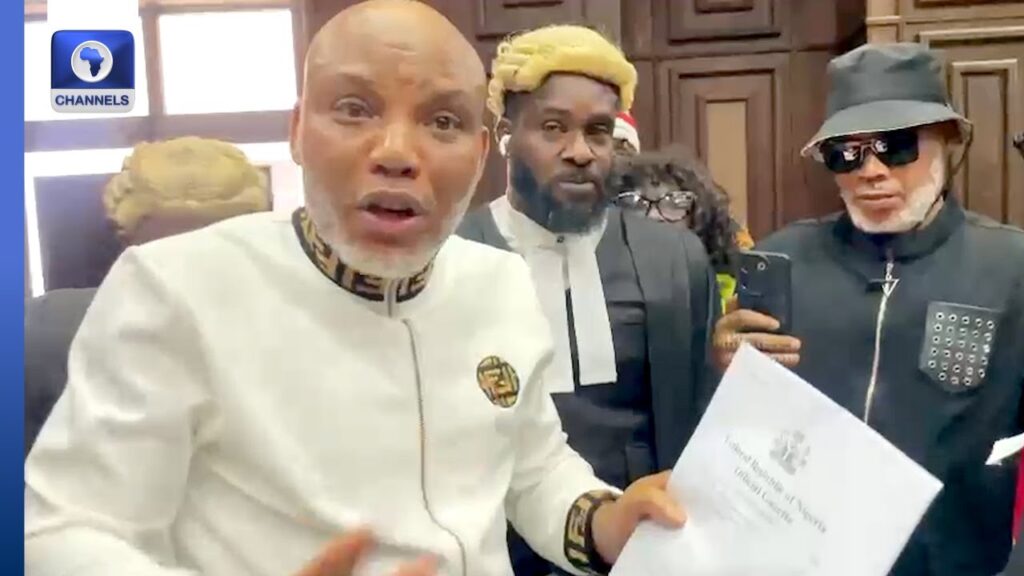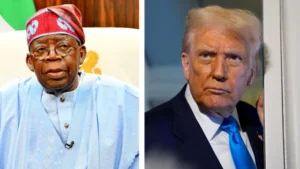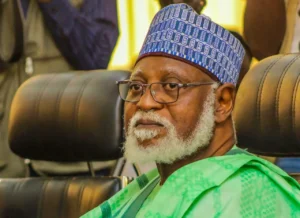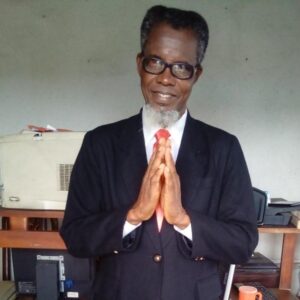THE STATE OF NIGERIA’s JUDICIARY: A REFLECTION ON CONTRADICTING VERDICTS AND CONSTITUTIONAL INTERPRETATION

In recent years, the Nigerian judiciary has found itself at the center of a storm, grappling with issues of conflicting verdicts, varied interpretations of the constitution, and the overarching influence of political power.
The implications of these challenges are profound, raising questions about the reliability and integrity of the legal system in a country where the rule of law is supposed to prevail.
Contradicting verdicts is the unavoidable proceed of a crisis of consistency
One of the most glaring issues within the Nigerian judiciary is the prevalence of contradicting verdicts. High-profile cases, such as the ongoing legal battles over the speakership seat in Rivers State and a host of taunting regional elections court cases in Nigeria, exemplify this troubling trend.
Different courts have issued conflicting rulings, leaving citizens and political actors alike in a state of confusion. This inconsistency not only undermines public confidence in the judiciary but also raises concerns about the impartiality of the courts.
For instance, in the Rivers State speakership case, various courts have issued rulings that seem to contradict one another, leading to a situation where it is unclear which judgment holds legal weight.
Similarly, LGA elections and the likes have been marred by legal disputes, with different courts interpreting electoral laws in ways that appear to favor certain political interests over others.
This lack of uniformity in judicial decisions creates an environment where the law seems to be at the mercy of those, in power, rather than serving as a steadfast guide for all.
In Nigeria, the legal system has seen several cases with contradicting verdicts over the years, reflecting the complexities and challenges within the judiciary.
Here are a few notable examples:
1.The case of the Abacha Loot: The legal battle surrounding the recovery of funds looted by the late General Sani Abacha have seen various court rulings.
Different courts have issued conflicting judgements regarding the ownership and repatriation of these funds, leading to confusion and disputes over the rightful beneficiaries.
2.The Osun state Governordhip Election Case (2018): The Supreme Court of Nigeria delivered a judgement that upheld the election of Gboyega Oyetola as the governor of, Osun State.
However, prior to this, the court of Apeal had issued a ruling that contradicted the Supreme Court’s final decision, leading to protracted legal battle and differing opinions on the legitimacy of the election results
3.The case of the Nigerian Army and the Shiite Movement: The legal proceedings involving the Islamic Movement in Nigeria (IMN) and the Nigerian Army have seen a conflicting, judgements.
The court had issued different rulings regarding the legality of the Army’s action during clashes with IMN members, leading to ongoing debates about human rights and the rule of law.
4.The case of the Lagos state Land Use Charge: The lagos state government introduced a land use charge that faced legal challenges.
Different courts issued varying judgements on the legality and constitutionality of the charge, leading to con fusion among property owners and stakeholders.
5.The case of the 2019 Presidential Election: After the 2019 presidential election, the opposition party, the People’s Democratic Party (PDP), challenged the result in court.
The Supreme Court ultimately upheld the election of President Muhammadu Buhari, but earlier rulings from lower courts had varied in their assessment of the evidence presented, leading to a perception of inconsistency in the judicial process.
These and lots of other cases illustrate the challenges within the Nigerian legal system, including issues of jurisdiction, interpretation of laws, and the influence of political factors on judicial outcomes.
The existence of contradicting verdicts can undermine public confidence in the judiciary and highlight the need for reforms to ensure consistency and fairness in legal proceedings.
If i may ask, why varied Interpretation of the Constitution?
The Nigerian constitution, which is meant to be the supreme law of the land, has become a subject of varied interpretations.
Legal practitioners and judges often find themselves at odds over the meaning of specific provisions, leading to divergent rulings on similar cases.
This phenomenon raises the question: Is the constitution itself flawed, or is it the interpretation that is inconsistent?
The answer may lie in the interplay between the judiciary and the political landscape. In a country where political power often influences judicial outcomes, the interpretation of the constitution can be swayed by the interests of those in authority.
This has led to a perception that the judiciary is not an independent arbiter of justice but rather a tool for political maneuvering.
Furthermore let us look into the Question of Obedience to Court Orders
In light of the conflicting verdicts and varied interpretations, a pressing question arises: Which court orders are we to obey? The lack of clarity in judicial rulings creates a precarious situation for citizens, political actors, and law enforcement agencies.
When different courts issue contradictory orders, it becomes increasingly difficult to determine the legitimate course of action.
This uncertainty can lead to a breakdown of law and order, as individuals and groups may choose to follow the ruling that aligns with their interests rather than the one that is legally sound.
What about the possible erosion of trust in the Judiciary?
As the judiciary grapples with these challenges, the erosion of trust in the legal system becomes evident. Citizens begin to question the validity of court judgments, viewing them as products of political influence rather than impartial justice.
This skepticism can have far-reaching consequences, as it undermines the very foundation of democracy and the rule of law.
The judiciary is meant to be a bulwark against tyranny and injustice, but when it appears to be compromised, the implications for society are dire.
The perception that the constitution has lost its validity to unscrupulous power holders fosters a sense of disillusionment among the populace, leading to a growing belief that the legal system is rigged in favor of the powerful.
Canvassing for a call for judicial reform is now or never.
The current state of Nigeria’s judiciary is a cause for concern. The prevalence of contradicting verdicts, varied interpretations of the constitution, and the erosion of trust in the legal system all point to a need for reform.
It is imperative that the judiciary re-establishes its independence and credibility, ensuring that justice is not only done but is seen to be done.
To restore faith in the legal system, there must be a concerted effort to address the underlying issues that have led to this crisis.
This includes promoting judicial accountability, enhancing the training of judges, and ensuring that the judiciary is insulated from political interference.
Only then can Nigeria hope to reclaim the rule of law and ensure that its constitution serves as a reliable framework for justice and governance.
A CALL TO LOOK INWARD
By: Amb. Dr. Samson Joseph Iriruaga.







